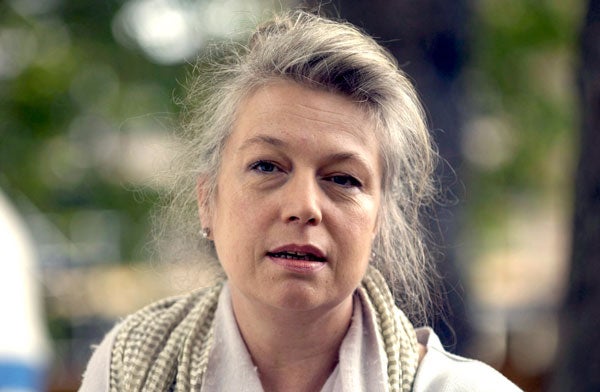What to Look for in Winter, By Candia McWilliam

T he art of losing" said Elizabeth Bishop in her poem "One Art", which serves as an epigraph to this memoir, "isn't hard to master". It's one that Candia McWilliam has got down to a (finely enunciated) T. Her life was once so enviable that a friend of a friend, she tells us, seeing a picture of her in a magazine, said "her life's so perfect even her wretched children look like dolls".
McWilliam, in fact, looked a bit like a doll herself. Six foot tall, with Rapunzel-like hair, big green eyes, and pouty lips, she was widely regarded (but not by herself) as a "beauty". She was the bluestocking femme fatale who dressed like something out of Vogue (where she briefly worked), married "a toff" and then a Parsi, produced some highly photogenic children and, in the late 1980s and early 1990s, some glitteringly polysyllabic novels, which triggered the accusation she has been hearing since she was six, and hates: that "Candia McWilliam's swallowed the dictionary".
By the time she starts this memoir, she has lost both husbands (though not, amazingly, as friends), her writing, which, after taking "a wrong turning", she has found herself unable to do for most of a decade, and her beauty. She has lost so much else besides: her home, her figure, her health, her self-respect, her place in the world and, most devastatingly of all, her sight. Her eyes, she says, "feel as though they have fallen in and dried out like deserted eggs". She has a condition called blepharospasm. She literally can't keep her eyes open to see. She can't read. She can't, in other words, do the thing that was always her bulwark against loneliness, that made her feel most fully alive. "I do," she says, "feel dead sometimes. I feel like a fat ghost".
In the attic of someone else's rackety flat in Chelsea, dictating to a young woman called Liv, she grapples with a form that feels to her less truthful than fiction, which goes against a lifetime's programming as a pathologically private, impeccably polite, English-accented Scot. From the opening paragraph, one thing is clear. She will not spare herself. Her gaze is merciless, unflinching, and sometimes (even she admits) "chilly".
It is, in every sense, an extraordinary tale. It starts in Edinburgh with a father who worked for the National Trust of Scotland ("never a person" she says succinctly "to allow blood to bias clarity") and a mother who loved Italy, tranquillisers and lipsticks. When Candia was nine, she found her mother lying in her bed, dead. Candia was sent to boarding school in England, acquired the accent that would ensure that she didn't belong anywhere (except, perhaps, with the English aristocracy) and the habit of becoming a "succubus" in other people's families.
One of them is the Mitchison clan in Kintyre. Another is the Howard family on Colonsay, an island she falls in love with, and where she later finishes the book.
Her cameos of these families offer glimpses of another (eccentric, intellectual, Bohemian and upper-class) world. It's a world she goes on to recreate in her own life: first in her marriage to Quentin, the heir to an earldom, and then in her marriage to Fram, a fastidious Oxford academic. When Private Eye mocks her for calling her son with him Minocher Framroze Eduljee Dinshaw, it's hard not to side with the magazine. And when that son announces that he did "a lot of Gibbon/Plato/Donne" on holiday with his father, you feel like calling Pseuds' Corner yourself. Fram's poodle is called Bysshe; his cat Segolene; his step-twins, when he acquires a second partner, Xavier and Yuo.
But these are the surface details of a life, and this memoir is not about the surface. It's a journey from a kind of light, or apparent light, into metaphorical and literal darkness. The darkness includes horrific details of her drift into alcoholism, a spell in very-far-from-glitzy rehab when she shares dormitories with prostitutes, and times when every orifice streams blood.
The bare facts are, of course, gripping, but in McWilliam's precise, poetic, probing-to-the-point-of-archaeological, voice, it is lifted into an entirely different realm. What to Look for in Winter is one of the most devastatingly moving memoirs I've ever read. It is about a battle with the self which is, at times, literally one of life and death. It's about envy and self-destruction and beauty and love. And it is, above all, about how, in the face of loneliness and paralysing loss, and the knowledge that "you will not find a new mother, you may not find a mate", you "carry on, as you are bound to do". This is, for all its minor irritations, a work of beauty and of truth. And that kind of beauty doesn't fade.
Subscribe to Independent Premium to bookmark this article
Want to bookmark your favourite articles and stories to read or reference later? Start your Independent Premium subscription today.

Join our commenting forum
Join thought-provoking conversations, follow other Independent readers and see their replies